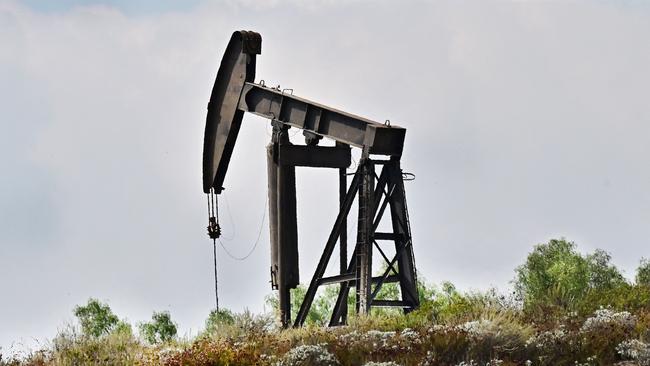Fossil fuel spending needed to hit net zero, says International Energy Agency
A new report released on Thursday found oil and gas was needed in every energy scenario including the most ambitious target to keep global warming to 1.5C of pre-industrial levels.

Business
Don't miss out on the headlines from Business. Followed categories will be added to My News.
New oil and gas investments will still be needed for the world to hit net zero emissions goals, the International Energy Agency (IEA) has conceded, with the fossil fuels required to ensure global energy security.
The IEA declared in 2021 that no new coalmines, oil or gas fields should be opened up if the world was to reach net-zero emissions by 2050.
A new report released on Thursday found oil and gas was needed in every energy scenario, including the most ambitious target to keep global warming to 1.5C of pre-industrial levels.
“While oil and gas production is vastly lower in transitions to net zero emissions, it will not disappear – even in a 1.5C scenario,” the IEA’s Oil and Gas Industry in Net Zero Transitions report said.
“Some investment in oil and gas supply is needed to ensure the security of energy supply and provide fuel for sectors in which emissions are harder to abate,” according to the report.
A previous roadmap by the IEA for the global energy sector to reach carbon neutrality by the middle of the century said there should be no more coal-fired power stations and called for an end to new petrol cars by 2035.
The IEA noted on Thursday that Russia’s invasion of Ukraine and its subsequent cuts to pipeline gas supply created a scramble among importers, notably in Europe, to secure alternative sources of supply.
“Energy transitions can happen without the engagement of the oil and gas industry, but the journey to net zero will be more costly and difficult to navigate if they are not on board,” the IEA said.
Still the global energy body sees a raft of problems in the oil and gas industry’s attempts to clean up supplies and deliver cleaner fuels for users.
The sector, which provides more than half of global energy supply, has been “a marginal force at best” in transitioning to a clean energy system, according to the report, noting oil and gas companies currently account for just 1 per cent of clean energy investment globally.
The IEA raises particular concern over carbon capture and storage, a much heralded technology touted by oil and gas producers for dealing with big pollution cuts required this decade.
The report warns that if oil and natural gas consumption were to evolve as projected under today’s policy settings, limiting the temperature rise to 1.5C would require an “entirely inconceivable” 32 billion tonnes of carbon captured for utilisation or storage by 2050, including 23 billion tonnes via direct air capture.
The IEA stated the amount of electricity needed to power the energy technologies would be greater than the entire world’s electricity demand today.
“Oil and gas producers around the world need to make profound decisions about their future place in the global energy sector,” IEA executive director Fatih Birol said.
“The industry needs to commit to genuinely helping the world meet its energy needs and climate goals, which means letting go of the illusion that implausibly large amounts of carbon capture are the solution,” Mr Birol said.
Carbon capture and storage in particular has been put forward as a technology fix to help Australia meet its emissions goals and part of a broader industry drive to hit net zero by 2050.
However, big Australian operators such as Santos have previously warned that Australia is missing an opportunity to create a major carbon capture and storage industry and called on governments to prioritise the technology.
The Climate Change Authority said in April that the federal government’s $10bn green bank and the Australian Renewable Energy Agency should be given expanded roles to turbocharge the nation’s carbon storage industry as pressure grows for deeper emissions cuts to hit a net zero goal by 2050.
Originally published as Fossil fuel spending needed to hit net zero, says International Energy Agency



